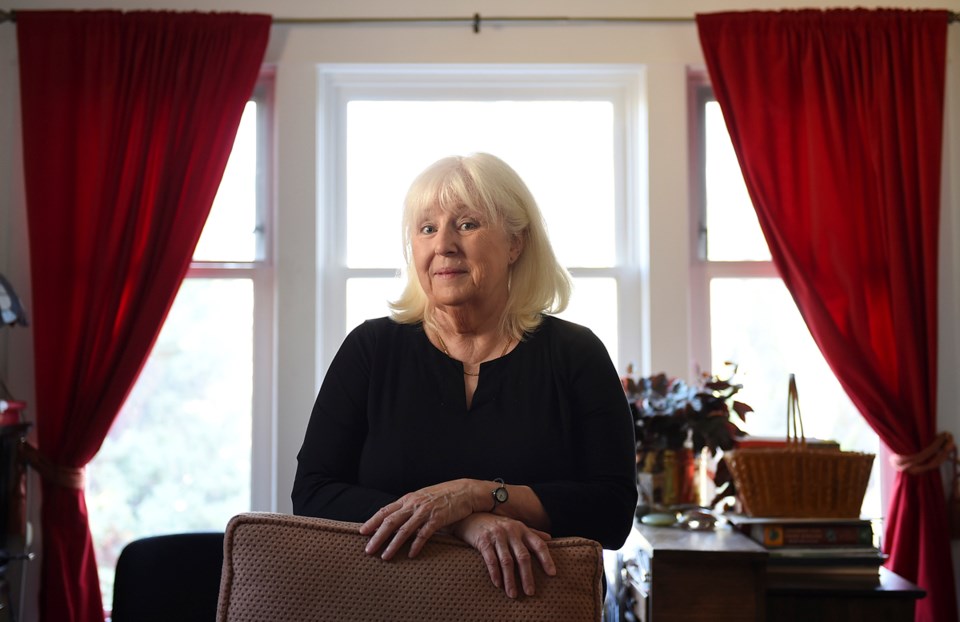Friendships may be fraying on Facebook over whether Syrian refugees pose a risk to Canada, but friendship and open-heartedness are going viral online and off. Last week’s column, , spread like wildfire, which I attribute more to Vancouverites’ enthusiasm for the cause than superb writing.
It is literally impossible to measure the numbers of individual Canadians, charitable organizations and faith groups coming forward to welcome Middle Eastern refugees, because it grows by the day.
In Â鶹´«Ă˝Ół»alone, Muslims, Christians, Jews and others of almost every stripe are upping the estimates of what they can do to help. Modest fundraising targets are being smashed. People are gathering food and other necessities, even though only a few refugees have arrived so far. Organizers in church central offices are inundated with calls from parishes and individual parishioners asking how to help.
There is a huge amount of enthusiasm, says Maggie Hosgood, a United Church member and volunteer leader with the Westside Churches Refugee Sponsorship Committee. The committee is a grouping of seven United, Mennonite and Presbyterian churches in the city. They’re sponsoring a pair of Syrian brothers in their 20s who could arrive within weeks.
Undertaking to sponsor an individual refugee or a family is no small thing.
“First of all, you undertake to support them fully,” says Hosgood. “That’s everything, for 12 months.”
Housing and all that goes into that — kitchen utensils, bedding, furniture — as well as clothing and all other expenses must be covered by the sponsoring group. The federal government estimates the commitment at about $30,000 per family, but clear-eyed Vancouverites recognize that local housing prices spike that considerably. Most local groups are using $40,000 as a rule of thumb.
Then there are the intangibles. At the very least, the group is expected to greet the new Canadians on their arrival, help them find their way around, aid them in meeting their incalculable number of needs, and ideally set them on a path toward earning their own way after the year of formal sponsorship ends. Most groups are prepared to do much more — and Hosgood has been involved in bringing plenty of earlier refugees. The group’s most recent sponsorship involved two young Tibetan women.
What religious values drive them? And is it counterintuitive that Christians are sponsoring Muslims (or, in the case of the Tibetans, Buddhists)?
“There is a lot of scripture that calls us to welcome the stranger, to look after those who need our help, to see brothers and sisters in new faces,” says Hosgood. “We have a saying — we don’t sponsor people because they are Christian. We sponsor people because we are Christian.”
About 32 Catholic parishes in Metro Â鶹´«Ă˝Ół»are already actively sponsoring refugees and several more are considering it, says Evelyn Vollet, director of the service and justice office of the Roman Catholic Archdiocese of Vancouver.
Again, why?
“It’s not an option for us,” she says. “As Christians, it’s a requirement. We do this with open hearts. It’s a privilege to be able to support those in greatest need.”
Azim Dahya, executive director of Muslim Food Bank and Community Services Society, said his group is channeling funds to the B.C. Muslim Association, which collectively hopes to sponsor at least 15 families. His agency will provide short- and long-term services to many of the newcomers.
“One of the first challenges is getting them to learn English, motivating them to connect with ESL programs, giving them a job or… help them develop skills and help them through other challenges,” says Dahya. “The youths, when they have addiction problems or mental health issues, then we help them in those areas by voluntary caseworkers connecting them with mainstream organizations or other Muslim organizations that do work in different areas and have expertise. That’s how we help them to become self-reliant, progressive citizens of this country.”
The Jewish community is also mobilizing to welcome refugees. Two Â鶹´«Ă˝Ół»synagogues are aiming to sponsor refugee families and more are considering it. Others are raising funds for relief on the ground in the Middle East.
The East Â鶹´«Ă˝Ół»synagogue Or Shalom aims to sponsor three families, focusing on family reunification and LGBT refugees.
“We’re kind of in the process right now of selecting the families, which obviously is going to be a pretty tough decision,” says Natalie Grunberg, who is part of the organizing committee.
Rabbi Dan Moskovitz, of Temple Sholom on Oak Street, says his synagogue also plans to sponsor multiple families, though he admits he had some pushback from congregants. But he said religious interdictions win out.
“The most often-repeated commandment in all of Jewish tradition is to love the stranger, because that was you once,” he says.
The federal government’s announcement that Canada will accept 25,000 Syrian refugees by the end of February — most of them government-sponsored — has been welcomed by those working with refugee and immigration services.
But some also note, without trying to pit one group against another, that there are refugees from other places that have been waiting five or six years to gain admission to Canada.
Jon Nofziger, constituency engagement facilitator for the B.C. region of the Mennonite Central Committee, looks on the bright side.
“Many churches have taken on Eritreans, Congolese, folks from Burma,” he says. The Syrian crisis has increased awareness about the needs of refugees and also about the ability of ordinary Canadians to be a part of helping them, through sponsorships. “It has allowed for a little bit more education and outreach, to consider folks from other countries who have been waiting for years. Folks all of a sudden are open to possibly considering refugee sponsorship now.”
@Pat604Johnson



